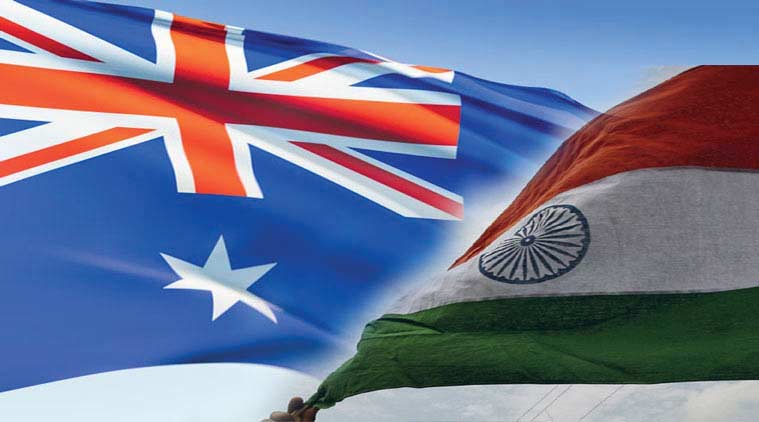Introduction
The largest democracies in the world, Australia and India, have shared a long-standing connection. Despite being far apart in terms of location, the two countries have a lot in common, including a history of British colonialism, a love of cricket, and a commitment to democracy. The connection between India and Australia has significantly accelerated recently, with both countries cooperating on a variety of subjects. This blog post intends to investigate the historical context of India-Australia relations, the current status, the problems faced, and the prospects for progress in the relationship between the two nations.
Historical Context of India-Australia Relations
The relationship between India and Australia dates to the colonial era, when both countries were under British authority. India served as a source of inexpensive labour and as a market for British goods, whereas the British utilized Australia as a prison colony and as a supply of raw materials. The two nations’ relations improved when India attained independence in 1947, and both countries joined the Commonwealth of Nations. The relationship did not start to blossom until the 1980s, when Australia shifted its attention from Europe to Asia and India opened its economy.
Current state of India-Australia relations
Today, India and Australia shares a close relationship on the global stage, India and Australia have always had a complex relationship, with both countries being major players in the Indo-Pacific region. But in recent years, there have been both chances and challenges in the two countries’ relationship. There is a lot on the line for both nations, which have some of the biggest and fastest-growing economies in the globe. Understanding the cultural, economic, and geopolitical dynamics that influence the connection between India and Australia is essential for navigating everything from political tensions to trade agreements.
Challenges that we’ve faced in the India-Australia relationship
India and Australia’s relationship has not been without its difficulties, despite their growing closeness. Lack of understanding between the two nations—many Australians know nothing about India, its culture, and its people—has been another difficulty. Furthermore, there have been disputes between the two countries regarding topics like nuclear power and climate change.

Issue 1: Trade tensions
One of the main concerns affecting India-Australia relations at the moment is trade disputes. Although being in the same economic zone, the two countries have had a hard time establishing reliable business relationships. India imposed increased duties in 2018 on a range of Australian goods, including chickpeas, lentils, and almonds. This response was made in response to Australia’s choice to end a visa scheme that had been popular with Indian students and employees. India perceived the action as a protectionist measure since it is working to expand domestic output and reduce dependency on imports.
Trade disputes are one of the key issues affecting India-Australia relations right now. Despite belonging to the same economic region, the two nations have had difficulty establishing good strategic ties. On several Australian products, including chickpeas, lentils, and almonds, India imposed increased tariffs in 2018. This action was taken in response to Australia’s decision to cancel a visa programme that had been well-liked by Indian workers and students. India, which is attempting to increase domestic manufacturing and lessen reliance on imports, viewed the action as a protectionist step.
Australia’s increasing ties to China have increased the trade tensions between the two nations. Australia’s expanding commercial connections with China have alarmed New Delhi since India views China as a strategic threat in the area. Australia has countered that its relationship with India does not suffer because of its commercial ties with China. With Prime Minister Scott Morrison travelling to India in 2019 to forge a new strategic partnership, the Australian government has also been seeking to improve trade ties with India.
The trade conflicts between Australia and India continue to be a significant obstacle despite these efforts. To forge a more profitable and balanced trade partnership, both nations must cooperate.
Issue 2: Strategic differences
Strategic differences present another difficulty for relations between India and Australia. When it comes to security and strategic concerns, Australia and India have distinct objectives. China, which is viewed as a growing force in the area, is the biggest security danger to India. To offset China’s expanding influence, India has been striving to cement its partnerships with other nations in the region, particularly Japan and the United States.
On the other side, Australia views the United States as its main security partner. Longstanding military ties exist between the two nations, and Australia has played a significant role in US led military operations in the Middle East. Australia has also been attempting to improve ties with China, which is one of its main trading partners.
Tensions between Australia and India have been brought on by these strategic divergences. However, both nations are also aware that cooperation is necessary to maintain regional security and stability. A strategic partnership agreement between India and Australia was signed in 2017 and covers defense, counterterrorism, and cybersecurity collaboration.
Issue 3: Cultural misunderstandings
Another difficulty for relations between Australia and India is cultural misunderstandings. Even though the two nations are in the same region, their cultures and business practices are very dissimilar. Australians may find it challenging to comprehend India’s hierarchical and bureaucratic culture, and India may find Australia’s blunt communication style off-putting.
This cultural gap may result in misinterpretations and poor communication between the two nations. For instance, India, which values interpersonal connections and face-to-face communication, viewed Australia’s decision to end the visa program popular with Indian
students and workers as a slight.
Both nations must invest in people-to-people ties, such as educational and cultural exchange initiatives, in order to overcome these cultural differences. These initiatives can lay the groundwork for more solidified bilateral ties between the two nations by fostering mutual trust and understanding.
Opportunities in India-Australia relations
Despite the challenges, there are many opportunities for Australia and India’s relationship to progress. One of the best opportunities is trade and investment. In contrast to India, which has one of the world’s fastest-growing economies, Australia is a significant supplier of natural resources like coal, iron ore, and gold. Together, the two nations can forge a win-win scenario in which Australia gains access to the sizable and growing Indian market and India acquires the raw materials required to fuel its economic expansion.
Despite these obstacles, there are still chances for India and Australia to strengthen their alliance and cooperate to tackle shared issues in the Indo-Pacific region.
Opportunity 1: Economic cooperation
Economic cooperation is one of India and Australia’s biggest opportunities. India, a significant producer of goods and services, and Australia, which is resource-rich, have complementary economies. The two nations can develop a more beneficial and balanced trade relationship by cooperating.
India has shown a growing interest in Australia’s natural resources in recent years. Australia wants to diversify its export markets, while India wants to secure its energy future and lessen its reliance on Middle Eastern oil. As a result, there have been numerous new investments and collaborations between the two nations in sectors like infrastructure, energy, and mining.
Additionally, there is potential for increased cooperation in the services sector, particularly in industries like IT, healthcare, and education. India’s expanding middle class is seeking top-notch services, and Australia is known for being the best in these fields.
Opportunity 2: Strategic partnership
India and Australia have the chance to strengthen their strategic alliance. Both nations share a commitment to democracy, the rule of law, and an international system based on rules. Additionally, they are both interested in maintaining regional security and stability, especially considering China’s expanding influence.
A strategic partnership agreement that establishes a framework for collaboration on defense, counterterrorism, and cybersecurity has already been signed between Australia and India. Deeper collaboration may, however, be possible in other fields, such as disaster management and maritime security.
Opportunity 3: People-to-people ties
And finally, there is a chance for India and Australia to improve their interpersonal relations. Given the vibrant and diverse societies of both nations, there is room for increased cross-cultural cooperation.
A sizable Indian diaspora exists in Australia and can act as a link between the two nations. Additionally, there is potential for increased cooperation in industries like education, sports, and the arts.
India and Australia can invest in people-to-people ties to foster trust and understanding between their societies and lay the groundwork for more solidified bilateral ties.
Areas of cooperation between India and Australia
India and Australia may collaborate in a variety of fields for their mutual benefit. The fields of education and cross-cultural interaction are among the most promising. Australia has some of the best colleges in the world, and India has a long history of culture. By promoting student exchanges, team-based research projects, and cultural events, the two nations can share knowledge and improve their relations. Another area of cooperation is in defense and strategic alliances. Both Australia and India must deal with the issues of terrorism and maritime security. By working together, the two nations can increase their security and build a more stable and peaceful region.
Bilateral trade and investment between India and Australia
Bilateral trade between Australia and India has been steadily growing since the signing of a free trade agreement in 2011. In 2019–20, the two-way trade between Australia and India was worth AUD 30.3 billion. India and Australia are each other’s fifth and eighth largest trading partners. The two countries aim to boost their trade surplus to AUD 50 billion by 2035.
Education and cultural exchange between India and Australia
India and Australia can collaborate for their mutual benefit in the fields of education and cultural exchange. India is a significant market for Australian universities due to its sizable and expanding youth population. On the other hand, Australian universities provide top-notch guidance in a welcoming environment. The two countries can strengthen their relations and gain knowledge from one another by encouraging student exchanges, collaborative research initiatives, and cultural festivals.
Defense and strategic partnership between India and Australia
Another area where India and Australia can work together for the benefit of both countries is in defense and strategic partnership. Terrorism and maritime security are two issues that both countries must deal with. The two countries can improve their security and create a more stable and peaceful region by cooperating. For many years, the two nations have worked together on defense and security-related issues, regularly conducting joint training and exercise programs.
Conclusion : The Future of India-Australia Relations Since the days of colonialism, India and Australia’s relationship has advanced significantly. The two countries now have a close relationship and collaborate on a variety of issues. Although there have been difficulties along the way, there are many chances for the relationship to develop. India and Australia can achieve a win-win situation in which both countries gain from their cooperation by working together. Given that both countries are dedicated to cultivating ties and establishing a more stable and prosperous region, the future of India-Australia relations appears bright.

